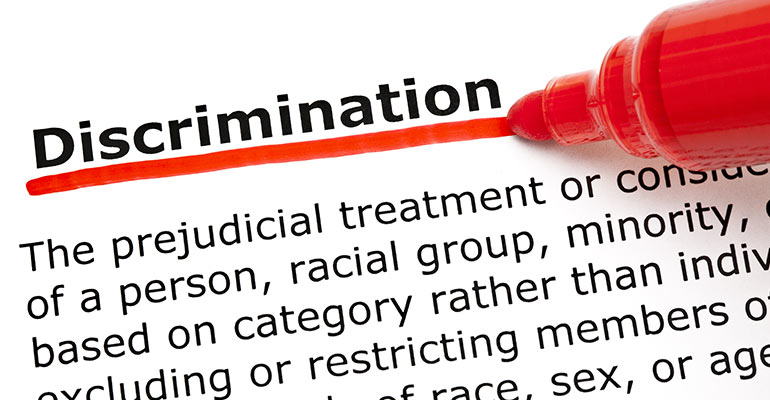
Can I Sue My Employer for Discrimination? Filing A Discrimination Claim In Florida
Employment discrimination negatively affects the careers and lives of many Florida workers every year. But employment law can be quite complex. Difficulties often occur in the workplace, but that does not necessarily mean what happened was illegal.
The basic answer to, “Can I sue my employer for discrimination?” is YES. But it is necessary to understand what that means prior to filing a discrimination claim.
What is Considered Workplace Discrimination?
Employment discrimination is treating someone differently either in the hiring process or as an employee, specifically due to that person being in a category protected by law. The Equal Employment Opportunity Commission (EEOC) is the federal agency which administered federal laws (and state law if dual filed) protecting you against employment discrimination, including being treated differently because of your race, color, religion, sex (including pregnancy, gender identity, and sexual orientation), national origin, disability, age (age 40 or older), or genetic information.
Types of behaviors/actions that could qualify for filing a discrimination claim include:
- Unequal treatment
- Harassment
- Denial of a reasonable workplace change (due to a disability or religious needs)
- Improper questions about or disclosure of your genetic information or medical information
- Retaliation (due to you filing a complaint of discrimination or being involved in an investigation)
How do You Prove Employment Discrimination?
There are multiple ways to prove employment discrimination. Each case has its unique circumstances and requires its own strategy. Employee rights lawyers will often use varying types of documentation that verify the events and circumstances, which may include witness statements as well as detailed information, including dates, times, what occurred, what was said, and related physical and digital evidence.
Documentation and circumstantial evidence may include:
- Employee reviews, pay stubs, and schedules
- Copies of derogatory/offensive communications such as emails, texts, memos, voice mails, and pictures
- Comments by supervisors or managers that reflect stereotypes
- An employer that segregates job duties by category, such as sex or race
- Other related materials, including journals, calendars, etc.
What Laws Protect Employees from Workplace Discrimination?
Luckily, there are federal laws in place to protect employees who’ve suffered discrimination in the workplace.
Title VII of the federal Civil Rights Act of 1964 (“Title VII”): Prohibits employment discrimination based on race, color, religion, sex, or national origin. It also prohibits retaliation for complaining about illegal discrimination.
Age Discrimination in Employment Act (“ADEA”): Protects individuals age 40 and older from discrimination.
Title I and Title V of the federal Americans with Disabilities Act of 1990 (collectively “ADA”): Prohibit employment discrimination against qualified individuals with disabilities in the private sector and in state and local governments.
Florida Civil Rights Act (“FCRA”): Makes it unlawful to discharge, fail or refuse to hire, or discriminate in “compensation, terms, conditions, or privileges of employment” based on a person’s race, color, religion, sex, national origin, handicap, or marital status. Like its federal counterpart, the FCRA also protects employees from retaliation for complaining about illegal discrimination.
Both Title VII and FCRA claims have similar requirements and similar (but not identical) remedies. However, before filing a lawsuit against your employer for sexual harassment and/or discrimination under either federal or Florida law, you must first file a “Charge of Discrimination” with either the Florida Commission on Human Relations (“FCHR”) or the Equal Employment Opportunity Commission (“EEOC”).
How Do I File a Discrimination Claim Against My Employer?
Filing a discrimination claim against your employer can be completed in several ways. The EEOC allows a “Charge of Discrimination” claim to be filed electronically at their online portal or in person at a local EEOC office. A claim of employment discrimination may also be filed under the FCRA. A discrimination attorney examines the details of the claim and can advise you on the best way to draft andfile your particular claim. You do not need to file the charge on your own or through the EEOC directly. Your employment lawyer can take care of all of those details and most importantly advise you as to the content and detail in the charge.
How Long Do I Have to File an Employment Discrimination Claim?
The short answer is “it depends.”
It is important to remember that before pursuing a sexual harassment or discrimination claim under either federal or Florida law, you must first file a Charge of Discrimination with the Equal Employment Opportunity Commission (“EEOC”) and/or the Florida Commission on Human Relations (“FCHR”).
If you’re considering filing a “Charge of Discrimination” against your employer, be aware that there are certain timeframes and guidelines you must follow.
- Charges for violation of federal law, including Title VII, must be filed within 300 days from the date of the last adverse employment action (in Florida the rule is 300 days. Some states do not have a work-share agreement with the EEOC and the time period to file is only 180 days).
- Charges for claims brought under the FCHR must be filed within 365 days.
- Claims that may be viable under federal law may be procedurally barred under the FCRA and vice versa.
- In Florida, a “workshare agreement” between the EEOC and FCHR contains a “dual filing” provision, meaning that a Charge filed with one agency is generally considered filed with the other.
What Happens After I File a Complaint?
Once a Charge is filed, then either the EEOC or FCHR begins investigating the allegations contained in the Charge. The results obtained by a Charging Party from EEOC and FCHR investigations vary greatly. Typically, after 180 days, you may file a lawsuit provided that the EEOC has notissued a determination or right-to-sue letter. You do not need to wait around forever while the charge is pending with the EEOC before taking independent action. If a right to sue letter is issued before 180 days, shorter time frames within which to file are applicable.
How Can a Discrimination Attorney Help My Case?
A discrimination attorney works aggressively to fight for your rights against powerful employers. They provide comprehensive expert analysis of your claim and understand what it takes to build a strong case to hold employers accountable for violations of employment law, including cases of employment discrimination. A discrimination attorney leads as your advocate throughout the complex processes and strict deadlines, fighting for fairness.
When working hard toward the resolution of a case, we provide expert negotiation, mediation, and arbitration. If needed, we do not hesitate to try our cases. We are your advocate each step of the way.
Do you have a case? Contact the Discrimination Attorneys at Wenzel Fenton Cabassa, P.A. today to schedule a free, confidential consultation.
Please Note: At the time this article was written, the information contained within it was current based on the prevailing law at the time. Laws and precedents are subject to change, so this information may not be up to date. Always speak with a law firm regarding any legal situation to get the most current information available.








